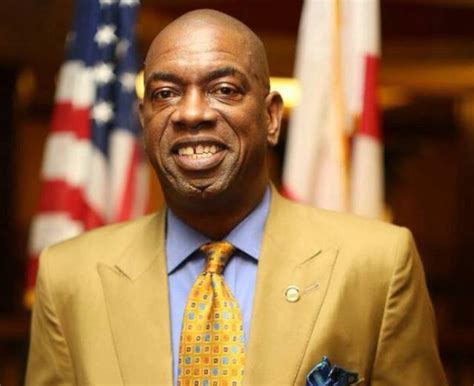A Quote by Gerald Fischbach
Memory is the scaffolding upon which all mental life is constructed.
Quote Topics
Related Quotes
It is culturally constructed, but not unnecessary. A crisis is a period in a person's life that lasts at least a year during which there is an unusual level of emotional instability, negativity, and crucially, major changes. This is important because right now, when you diagnose mental health problems, where you are in life doesn't really come into it. Psychologists are saying that it should.
The animal kingdom exhibits a series of mental developments which may be regarded as antecedents to the mental development of man, for the mental life of animals shows itself to be throughout, in its elements and in the general laws governing the combination of the elements, the same as the mental life of man.
The analogy between the mind and a computer fails for many reasons. The brain is constructed by principles that assure diversity and degeneracy. Unlike a computer, it has no replicative memory. It is historical and value driven. It forms categories by internal criteria and by constraints acting at many scales, not by means of a syntactically constructed program. The world with which the brain interacts is not unequivocally made up of classical categories.
Memory is a dead thing. Memory is not truth and cannot ever be, because truth is always alive, truth is life; memory is persistence of that which is no more. It is living in ghost world, but it contains us, it is our prison. In fact it is us. Memory creates the knot, the complex called the I and the ego
If there's a black cat that crosses the street in my path, I will turn around and walk 20 minutes out of my way to not cross it. You know how in New York there's a lot of scaffolding? I won't walk under scaffolding or under ladders. I wear things like a baseball player wears things that are supposed to have luck.
The vast results obtained by Science are won by no mystical faculties, by no mental processes other than those which are practicedby every one of us, in the humblest and meanest affairs of life. A detective policeman discovers a burglar from the marks made by his shoe, by a mental process identical with that by which Cuvier restored the extinct animals of Montmartre from fragments of their bones.
We don’t constrain our mental powers when we store new long-term memories. We strengthen them. With each expansion of our memory comes an enlargement of our intelligence. The Web provides a convenient and compelling supplement to personal memory - but when we start using the Web as a substitute for personal memory, by bypassing the inner processes of consolidation, we risk emptying our minds of their riches.

































